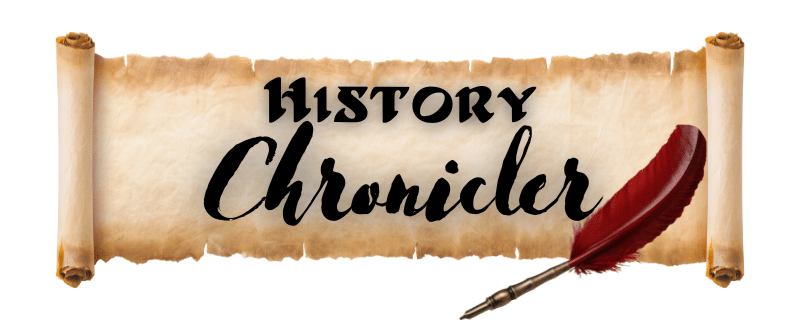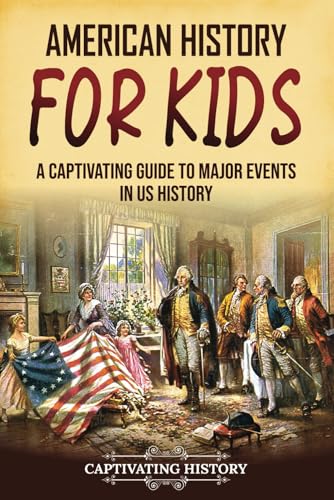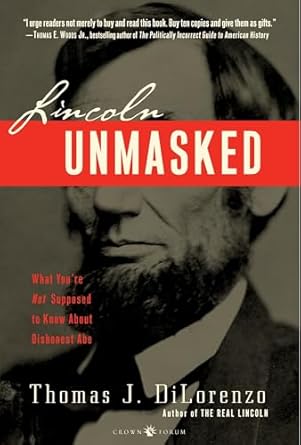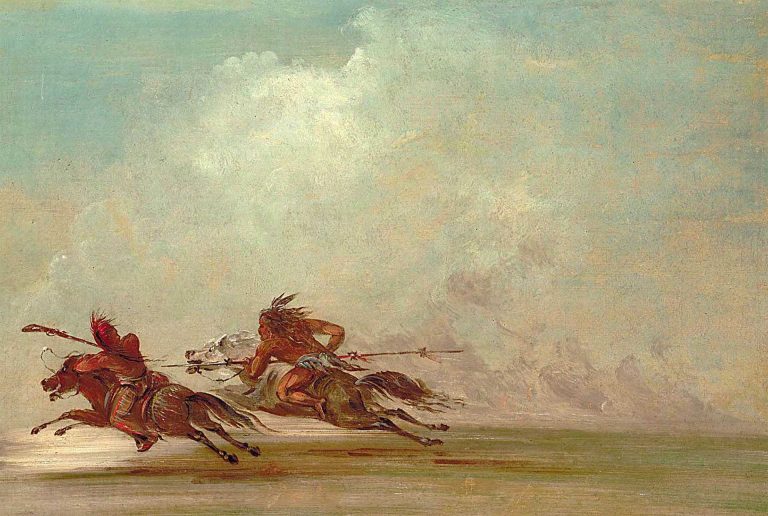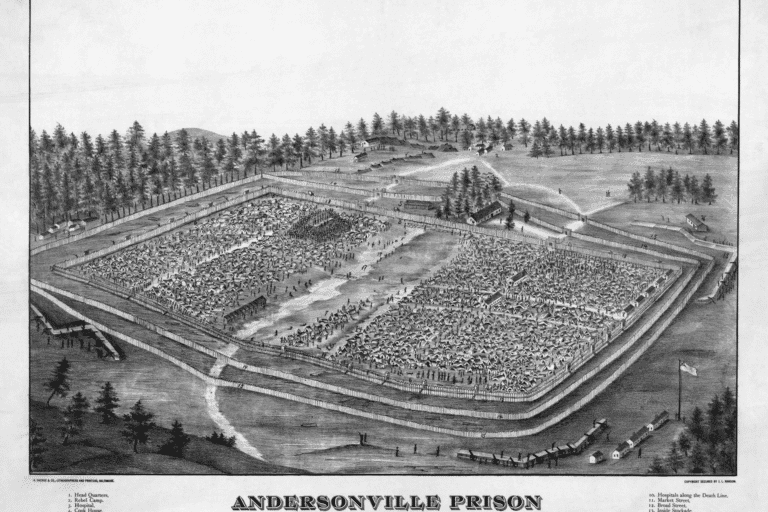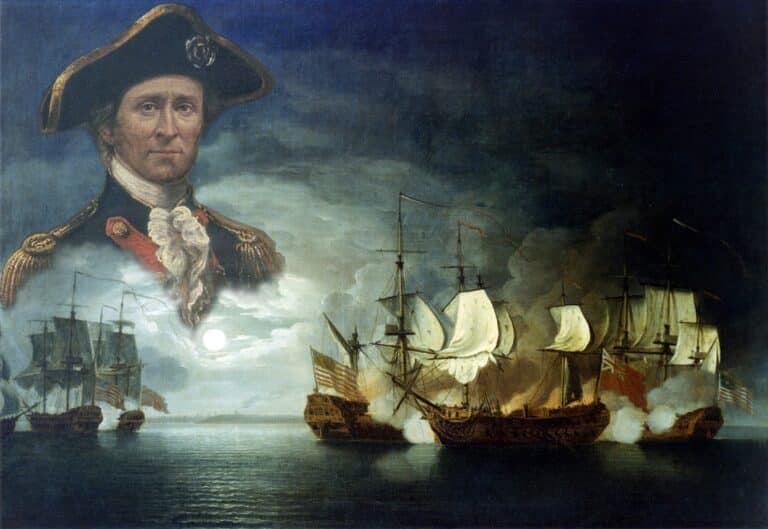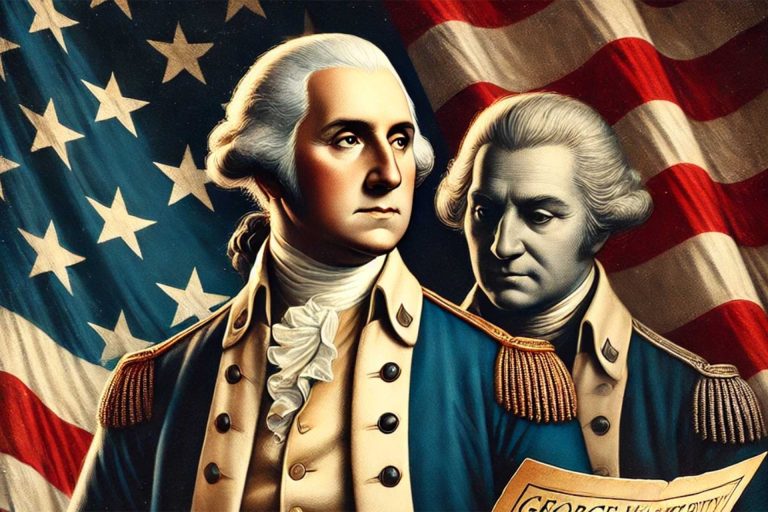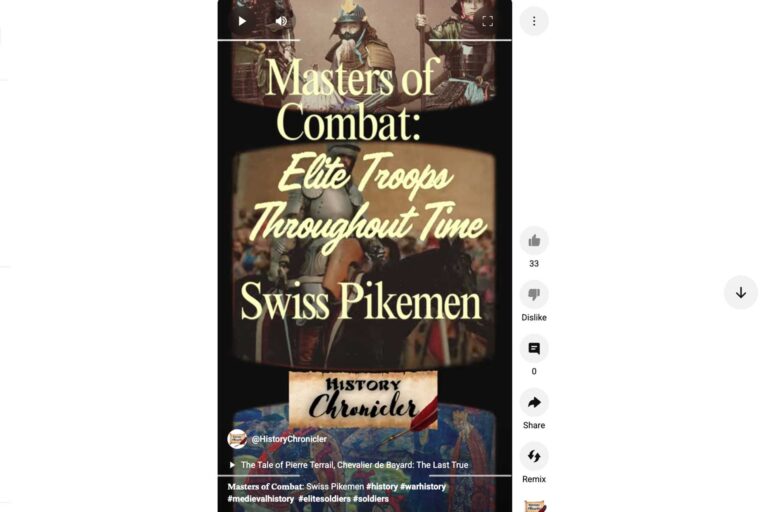25+ Best American Civil War Books to Understand the Conflict
Books on the American Civil War can transport you to a defining period in U.S. history. From personal memoirs to strategic military analyses, these books delve into the causes, battles, and aftermath of a conflict that shaped the nation. Abraham Lincoln once said, “A house divided against itself cannot stand,” and the books on this list explore how that division led to four years of brutal warfare and ultimately redefined America’s future.
If you’re fascinated by battlefield strategy, political intrigue, or the human stories of soldiers and civilians caught in the conflict, the 25+ best American Civil War books offer a wealth of knowledge. They bring to life the sacrifices made during the war and the resilience of a nation determined to reunite.

25+ Best American Civil War Books to Understand the Conflict
1. Battle Cry of Freedom – James M. McPherson
(Non-Fiction, Comprehensive History)

Topic: A one-volume history of the Civil War from its origins to aftermath.
Summary: McPherson covers military, political, and social issues evenly and effectively. He covers the reasons for secession, battles, and leadership. This book is not a dry narrative, but a thrilling ride from start to finish. It won the Pulitzer Prize for history, and it’s not hard to see why. It’s almost universally acknowledged as one of the best book histories of the Civil War.
2. A Stillness at Appomattox – Bruce Catton
(Non-Fiction, Military History)

Topic: The final year of the Civil War and the Army of the Potomac.
Summary: Catton provides a detailed account of what it was like for Union soldiers to fight in the war’s final battles. His emphasis is on Grant’s pursuit of Lee and the final surrender at Appomattox. He brings to life the soldiers’ tiredness, willpower, and heroism.
3. The Civil War: A Narrative (Trilogy) – Shelby Foote
(Non-Fiction, Military & Political History)

Topic: A detailed, three-volume history of the war.
Summary: Foote combines scholarly research and writing style with the narrative devices of a novelist. Covering the vast events of the war, with all its political and military leaders and decisions, emphasizing the leading figures, while also weaving in its personal drama, in a comprehensive yet readily understandable and even enjoyable manner, is an extraordinary accomplishment. Foote is a most enjoyable writer, and anyone interested in the American Civil War will want to read this.
4. Team of Rivals – Doris Kearns Goodwin
(Non-Fiction, Political Biography)

Topic: Lincoln’s leadership and his cabinet during the Civil War.
Summary: Goodwin details how Lincoln managed to get his political enemies to join his cabinet. The book chronicles Lincoln’s wisdom, leadership, and unifying of a divided government. The study of political strategy provides excellent insight into one of America’s greatest presidents.
5. The Civil War Trilogy: Gods and Generals / The Killer Angels / The Last Full Measure – Michael & Jeff Shaara
(Fiction, Historical Novel)

Topic: The Battle of Gettysburg from multiple perspectives.
Summary: Shaara’s Pulitzer Prize-winning book humanizes the commanders and soldiers on both sides of the Gettysburg battlefield. General Lee, Chamberlain, Longstreet, and the rest of the key characters receive fuller characterization than in most accounts. It’s considered among the best fictionalized versions of the war.
6. For Cause and Comrades – James M. McPherson
(Non-Fiction, Soldier’s Perspective)

Topic: Why soldiers fought in the Civil War.
Summary: Drawing on personal letters and diaries, McPherson explains the motives of Union and Confederate soldiers. He shows how ideology, duty, and camaraderie made soldiers willing to suffer. It is a very personal portrait of the men who fought.
7. Grant – Ron Chernow
(Non-Fiction, Biography)

Topic: A biography of Ulysses S. Grant.
Summary: Chernow’s biography offers a nuanced view of Grant, chronicling his life from a shy young man to a formidable general and president. The book delves into his early struggles, including a well-known drinking problem, and his eventual triumphs. It’s a detailed exploration of his military strategies and political decisions, providing a well-rounded picture of his leadership during and after the Civil War.
8. Confederate Reckoning – Stephanie McCurry
(Non-Fiction, Social History)

Topic: The role of women and enslaved people in the Confederacy.
Summary: McCurry’s book looks at how Confederate policy and authority were undermined by Southern women and enslaved people. The book chronicles internal dissent that helped erode the Confederacy from within. The book offers fresh insight into the social history of the war.
9. Lincoln at Gettysburg – Garry Wills
(Non-Fiction, Political Analysis)

Topic: The significance of the Gettysburg Address.
Summary: Wills examines Lincoln’s address and shows how it changed American democracy. He contends that it redefined the Constitution and national unity. The book links Lincoln’s words to the broader struggles of the Civil War.
10. Landscape Turned Red – Stephen W. Sears
(Non-Fiction, Military History)

Topic: The Battle of Antietam, the bloodiest day in American history.
Summary: Sears describes the bloody fight that gave Lincoln the resolve to issue the Emancipation Proclamation. He writes with clarity about the confusion, heroism, and mistakes on both sides. The book portrays the horror and importance of the struggle.
11. This Hallowed Ground – Bruce Catton
(Non-Fiction, Union Army Focus)

Topic: The war from the perspective of the Union.
Summary: Catton chronicles the war through the trials and victories of the Union Army. His tale weaves together military analysis and pathos. Catton’s book endures as a classic for its narrative style.
12. Rebel Yell – S.C. Gwynne
(Non-Fiction, Biography)

Topic: The life and legacy of Stonewall Jackson.
Summary: Gwynne discusses how Jackson’s audacity and command impacted the Confederate triumphs. The book covers his quirky character, religious intensity, and unlikely martial genius. It’s an intriguing portrait of one of the South’s most iconic figures.
13. The March – E.L. Doctorow
(Fiction, Historical Novel)

Topic: Sherman’s march through the South.
Summary: Doctorow imagines a story based on actual events as Sherman’s army marches through the Confederate heartland. The book follows a large cast of characters: soldiers, civilians. It chronicles the destruction, confusion and change of war.
14. A Short History of the Civil War – James L. Stokesbury
(Non-Fiction, Overview)

Topic: A concise history of the war.
Summary: Stokesbury offers a very readable introduction to the books about the Civil War. He boils the events down to the basics in an easy to read format. It is a great introduction for those who are new to the Civil War.
15. The Union War – Gary W. Gallagher
(Non-Fiction, Military & Political History)

Topic: Why Union soldiers fought and how they viewed the war.
Summary: Gallagher states that the most crucial reason why the Northern soldiers fought was the Union cause. He then discusses different war aims, their changes over time, and the reasons for those changes, such as emancipation. The book challenges preconceived ideas on the Union cause.
16. Company Aytch – Sam Watkins (Non-Fiction, Memoir)

Topic: A Confederate soldier’s personal account.
Summary: Watkins gives a detailed account of his life as a foot soldier in the Confederate Army. It relates the miseries, jokes, and terrors of the war from a private’s perspective and is one of the most interesting first-person Civil War accounts.
17. The Fall of the House of Dixie – Bruce Levine
(Non-Fiction, Social & Political History)

Topic: The collapse of the Confederacy.
Summary: Levine looks at internal tensions, economic issues, and Union successes that undermined the Southern war effort. He stresses the impact of enslaved people in subverting the Confederate system. The book offers a new interpretation of Southern defeat.
18. Tried by War – James M. McPherson
(Non-Fiction, Lincoln’s Leadership)

Topic: Lincoln’s role as commander-in-chief.
Summary: McPherson deals with Lincoln’s political and military leadership. The book discusses how Lincoln, a man with no formal military education, matured into a war strategist. It is a fascinating examination of a leader in crisis.
19. Bloody Crimes: The Chase for Jefferson Davis and the Death Pageant for Lincoln’s Corpse – James L. Swanson
(Non-Fiction, Political History)

Topic: The aftermath of Lincoln’s assassination and Jefferson Davis’s capture.
Summary: Swanson narrates the high-stakes chase for Confederate President Jefferson Davis alongside the national grieving over Lincoln’s murder. He contrasts the divergent fates of the two leaders and shows how the war truly did not end at Appomattox. The book is an engrossing account of the tumult and confusion at the end of the war.
20. Lincoln’s Lieutenants: The High Command of the Army of the Potomac – Stephen W. Sears
(Non-Fiction, Military History)

Topic: The leadership of the Union Army’s main fighting force.
Summary: Sears assesses the generals of the Army of the Potomac. He highlights their strengths and weaknesses. From McClellan’s caution to Grant’s aggressiveness, Sears offers a comprehensive look at the individuals who led the North’s premier army. It is a significant look at military leadership during the war.
21. A People’s History of the Civil War – David Williams
(Non-Fiction, Social History)

Topic: The war’s impact on ordinary Americans.
Summary: Williams examines the impact of the war on farmers, laborers, women, and slaves. He emphasizes resistance in the Confederacy and how economic difficulties hampered the war effort. The book is notable for its perspective on the war from the common man’s point of view.
22. The War That Forged a Nation: Why the Civil War Still Matters – James M. McPherson
(Non-Fiction, Modern Relevance)

Topic: How the Civil War continues to shape America.
Summary: McPherson delves into the enduring legacy of the Civil War, considering its impact on race relations, federal power, and national identity. He links historical events to contemporary political and social issues, demonstrating the war’s ongoing relevance. This book will resonate with readers interested in how the past informs the present.
23. The Real Lincoln – Thomas J. DiLorenzo
(Non-Fiction, Critical Biography)

Topic: A controversial re-examination of Lincoln’s leadership.
Summary: DiLorenzo believes that Lincoln’s primary goal was the expansion of federal power rather than the abolition of slavery. He disputes the common heroic depiction of Lincoln, instead portraying him as a power-hungry politician. The book challenges readers to reconsider the legacy of Lincoln and the Civil War.
24. The Confederate and Neo-Confederate Reader: The “Great Truth” about the Lost Cause – James W. Loewen & Edward H. Sebesta
(Non-Fiction, Ideological History)

Topic: The myths and realities of the Confederacy.
Summary: Award-winning historian Margaret E. Chesney debunks the “Lost Cause” with primary documents that reveal the Confederacy’s true intent. This book chronicles how the South rewrote the war’s history in the minds of the people. Students must read this to understand how history is created.
25. Bury My Heart at Wounded Knee – Dee Brown
(Non-Fiction, Native American Perspective)

Topic: How the Civil War era impacted Native American tribes.
Summary: Brown documents the forced removals, broken treaties, and military conflicts between Native American tribes and the U.S. government, many of which escalated during and after the Civil War. The book exposes the tragic results of westward expansion on Native American peoples. It offers a frequently overlooked perspective on how the war affected American history beyond the front lines.
26. The Iron Brigade: Its History and Its Men in the Civil War – Alan T. Nolan
(Non-Fiction, Military History)

Topic: The legendary Iron Brigade and its battles.
Summary: Nolan goes in the footsteps of the Iron Brigade, the Union Army’s Black Hat Brawlers, who are one of the most famous units of the Civil War. A group of elite regiments, they saw action in many key battles, from Antietam to Gettysburg, suffering heavy casualties due to their ferociousness—an excellent book for people interested in the military’s special forces.
27. A Short History of Reconstruction – Eric Foner
(Non-Fiction, Post-War Analysis)

Topic: The post-Civil War struggle to rebuild the nation.
Summary: Foner distills his Pulitzer Prize-winning Reconstruction: America’s Unfinished Revolution into this short but substantive overview of the post-war era. Foner details the attempts by the newly freed to gain political and economic rights, the violent reaction they encountered, and the lasting problems of reunification and the causes of racial strife.
28. Grierson’s Raid: A Daring Cavalry Strike Through the Heart of the Confederacy – Tom Lalicki
(Non-Fiction, Civil War Cavalry Raid)

Topic: Colonel Benjamin Grierson’s daring 1863 cavalry raid deep into Confederate territory.
Summary: In this narrative, Lalicki describes how Grierson led his Union cavalry on a 600-mile raid through Mississippi, tearing up rail lines, frustrating Confederate communications and reinforcements, and providing a diversion to aid Grant’s Vicksburg Campaign. The book explores the audacity, stamina, and resourcefulness required for such a mission, which became one of the most effective cavalry operations of the war. Lalicki’s writing conveys the excitement and strategic importance of Grierson’s raid and its role in the Union victory at Vicksburg.
29. Timothy B. Smith’s Collection on the Vicksburg Campaign – Timothy B. Smith
(Non-Fiction, Vicksburg Campaign)

Topic: A detailed multi-volume examination of the Vicksburg Campaign, covering battles, strategy, and leadership.
Summary: Smith has written a five-volume series, one of the most comprehensive treatments of the Vicksburg Campaign. The books are: Champion Hill: Decisive Battle for Vicksburg; The Decision Was Always My Own: Ulysses S. Grant and the Vicksburg Campaign; The Union Assaults at Vicksburg; The Real Horse Soldiers: Benjamin Grierson’s Epic 1863 Civil War Raid; and Early Struggles for Vicksburg.
30. Receding Tide: Vicksburg and Gettysburg – The Campaigns That Changed the Civil War – Edwin C. Bearss and J. Parker Hills
(Non-Fiction, Twin Union Victories of 1863)

Topic: The simultaneous Union victories at Vicksburg and Gettysburg that marked the turning point of the Civil War.
Summary: Bearss and Hills explore how the twin victories of July 1863 shattered Confederate hopes for victory. Seamlessly interweaving the two campaigns, they demonstrate how the battles were strategically connected and how they altered the course of the war. Bearss’s extraordinary insight into the battlefield, combined with Hill’s contributions to the narrative, makes this a compelling account of these crucial months in Civil War history.
31. Soldiers from Experience: The Forging of Sherman’s Fifteenth Army Corps, 1862–1863 – Eric Michael Burke
(Non-Fiction, Union Army Corps Development)

Topic: The formation and evolution of Sherman’s Fifteenth Army Corps during the early years of the Civil War.
Summary: Burke reveals how Sherman’s Fifteenth Corps turned a ragtag collection of Union soldiers into one of the most fearsome fighting forces of the Civil War. After the corps’ baptism of fire at Vicksburg, the men of Sherman’s unit went on to write one of the most distinguished chapters in the history of combat. The fifteen months of the Fifteenth Corps’ participation in the great struggles of the Western Theater tested the mettle of the soldiers and helped to turn them into a hard-hitting, elite fighting force.
32. Uncle Tom’s Cabin – Harriet Beecher Stowe
(Fiction, Anti-Slavery Novel)

Topic: A powerful fictional account of slavery in antebellum America that helped galvanize anti-slavery sentiment.
Summary: Stowe’s famous novel chronicles the life of Uncle Tom, a long-suffering enslaved man. It reveals the realities of slave life and humanizes slaves while depicting the moral corruption of the institution itself. Uncle Tom’s Cabin is often credited with helping sway public opinion in the North and with setting the stage for the Civil War.
33. The Army of Tennessee – Stanley F. Horn
(Non-Fiction, Confederate Military History)

Topic: The history, campaigns, and leadership of the Confederate Army of Tennessee during the American Civil War.
Summary: Horn chronicles the Confederacy’s main western army from its initial success and battlefield development to its collapse. He details specific battles, changes in leadership, and shifting morale to show how disagreements and mismanagement led to the army’s final fate. He shows the experiences of the soldiers and officers on and off the battlefield in a way that is sympathetic to their efforts while also explaining how their side was fated to fail.
34. Autumn of Glory: The Army of Tennessee, 1862–1865 – Thomas Lawrence Connelly
(Non-Fiction, Military History and Leadership Analysis)

Topic: A scholarly analysis of the Army of Tennessee’s final years, focusing on leadership struggles and battlefield failures.
Summary: Connelly covers the entire history of the Army of Tennessee during the war’s final years, including its string of defeats, the low morale it suffered, and the lack of confidence in its leadership. Offering keen insight into the actions and decisions of Confederate generals Braxton Bragg, John Bell Hood, and Joseph E. Johnston, among others, Autumn of Glory also gives a frank assessment of how dissension and personal animosity created problems for the Confederate command. A military history and an indictment of Confederate leadership in the West, Autumn of Glory has long been considered an essential study of the Army of Tennessee.
35. The War for the Union – Allan Nevins
(Non-Fiction, Comprehensive Civil War History – Multi-Volume)

Topic: A sweeping, multi-volume chronicle of the Civil War from both Union and Confederate perspectives.
Summary: Nevins’ The War for the Union series is a magisterial and detailed study of the political, military, and social aspects of the war. Drawing on extensive primary sources, Nevins covers the Union war effort, leadership, military strategy, and the home front. The series is celebrated for its objectivity and storytelling.
Best civil war books offer a unique window into one of the most pivotal moments in American history. Ranging from personal soldier accounts to strategic military analyses, these books dive deep into the people, battles, and political struggles that characterized this period of transformation. The best Civil War books range from firsthand accounts of soldiers on the front lines to strategic military analyses, and even include thought-provoking studies on race and society. Whether you’re interested in the strategies and tactics of famous battles, the critical decisions of influential leaders, or the day-to-day experiences of soldiers and civilians, the best Civil War books can provide you with a deeper understanding of the war and its long-lasting impact.
Exploring the causes, strategies, key battles, and profound effects of the Civil War offers us valuable insights into the struggles that defined America in the 19th century and its continued relevance in our society. The best Civil War books serve as more than just a record of names and dates. They take us beyond the mere facts and figures, immersing us in the hopes, ideologies, and sacrifices of the men and women who experienced the war firsthand.
Whether you are a history enthusiast or someone looking to broaden your understanding of this critical period, these books can provide an invaluable perspective. By walking in the footsteps of soldiers, strategists, and ordinary civilians caught in the midst of conflict, we can connect with the past in a way that brings history to life.
